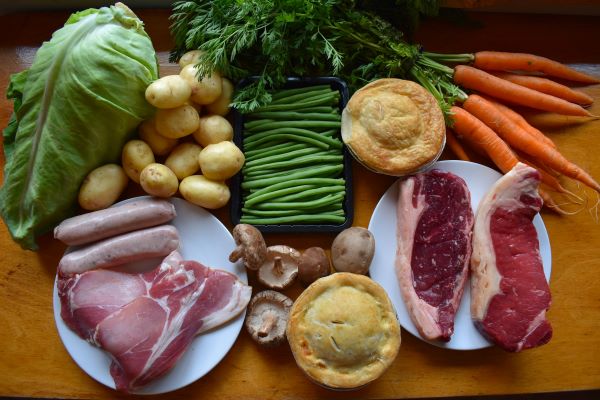Media reactions of National Food Strategy overlooked need for greater government action for reform, say researchers
New research suggests that more emphasis on individual responsibility to tackle issues relating to food, instead of systemic change was pushed within media, in response to the National Food Strategy (NFS). Researchers from the Royal Veterinary College (RVC) alongside the University of Edinburgh, examined media coverage and X (Twitter) sentiment of reactions to better understand how public perception was impacted in regard to where responsibility lies.

The NFS was a government-commissioned independent review in 2021 that offered 14 recommendations to reform the UK’s food system in a bid to tackle issues relating to food, such as high child obesity and rising levels of stunting. Since the strategy’s launch, the findings have been widely debated within the media, with questions being raised around how and who should fix the ‘broken’ food system.
Through the use of ‘framing’ – promoting different positioning and perceptions of stories – the media has the capability to shape and influence public opinion and policy direction. In the case of the NFS, the study found that coverage of the strategy’s findings placed greater responsibility for change on consumer’s personal choice. This was opposed to acknowledging the persistent structural challenges within the food system that require systemic change that can only be achieved through government intervention.

From the analysis, NFS recommendations appeared to be portrayed as issues of free choice, shifting the debate away from government action correcting for market failure. In contrast, the industry was showcased as equipped to intervene on its own accord. Coverage was also found to focus more on “culture wars”, for example, framing dietary recommendations as detrimental to the poor, without including these important voices within the debate.
The researchers of the paper recommend that there is a need to shift from this approach to one which discusses interventions that reform the structural causes of poor food systems outcomes in the UK, such as rising obesity and environmental run-offs of food production. Only then will the onus for dietary change switch from consumers to the government and the industry.
With the 2024 general election looming in the UK and the roll-out of post-Brexit policies such as the Environmental Land Management Scheme and Sustainable Farming Incentive, there is a need for nuanced reporting and debate to showcase greater diversity of stakeholder views to help better inform and shape public opinion on food systems reform.
Dr Mehroosh Tak, Senior Lecturer in Agribusiness at the Royal Veterinary College, and lead author of the paper, said:
“The paper speaks to existing debates on food systems transformation by stressing the need for structural solutions instead of technofixes aimed primarily at the consumers. This requires reframing ‘what we eat’ from issue of consumer choice to a wider transformation of the broken food system.
“The study argues for the re‑politicisation of British food policy as a structural problem that contests the nature of what food is produced and how it is made accessible to consumers as essential for policymakers to view the food system transformation as part of a wider social justice process.”
Notes to Editors
Reference
Tak, M., Blair, K., & Marques J., Who is responsible for fixing the food system? A framing analysis of media reactions to the UK’s National Food Strategy. British Food Journal, 126:13
The full paper is available here: https://www.emerald.com/insight/content/doi/10.1108/BFJ-04-2023-0338/full/html
For media enquiries, please contact:
- Jasmin De Vivo at jasmin.devivo@plmr.co.uk or rvc@plmr.co.uk
- Press Line: 0800 368 9520
About the RVC
- The Royal Veterinary College (RVC) is the UK's largest and longest established independent veterinary school and is a Member Institution of the University of London.
- It is one of the few veterinary schools in the world that hold accreditations from the RCVS in the UK (with reciprocal recognition from the AVBC for Australasia, the VCI for Ireland and the SAVC for South Africa), the EAEVE in the EU, and the AVMA in the USA and Canada.
- The RVC is ranked as the top veterinary school in the world in the QS World University Rankings by subject, 2023.
- The RVC offers undergraduate and postgraduate programmes in veterinary medicine, veterinary nursing and biological sciences.
- The RVC is a research-led institution, with 88% of its research rated as internationally excellent or world class in the Research Excellence Framework 2021.
- The RVC provides animal owners and the veterinary profession with access to expert veterinary care and advice through its teaching hospitals and first opinion practices in London and Hertfordshire.
You may also be interested in:
-
RVC students take part in FAO Global Youth Dialogue on Sustainable Livestock Transformation
RVC students Femi Bankole, Lavinia Scudiero and Zip Walton recently partook in a Global Youth …

